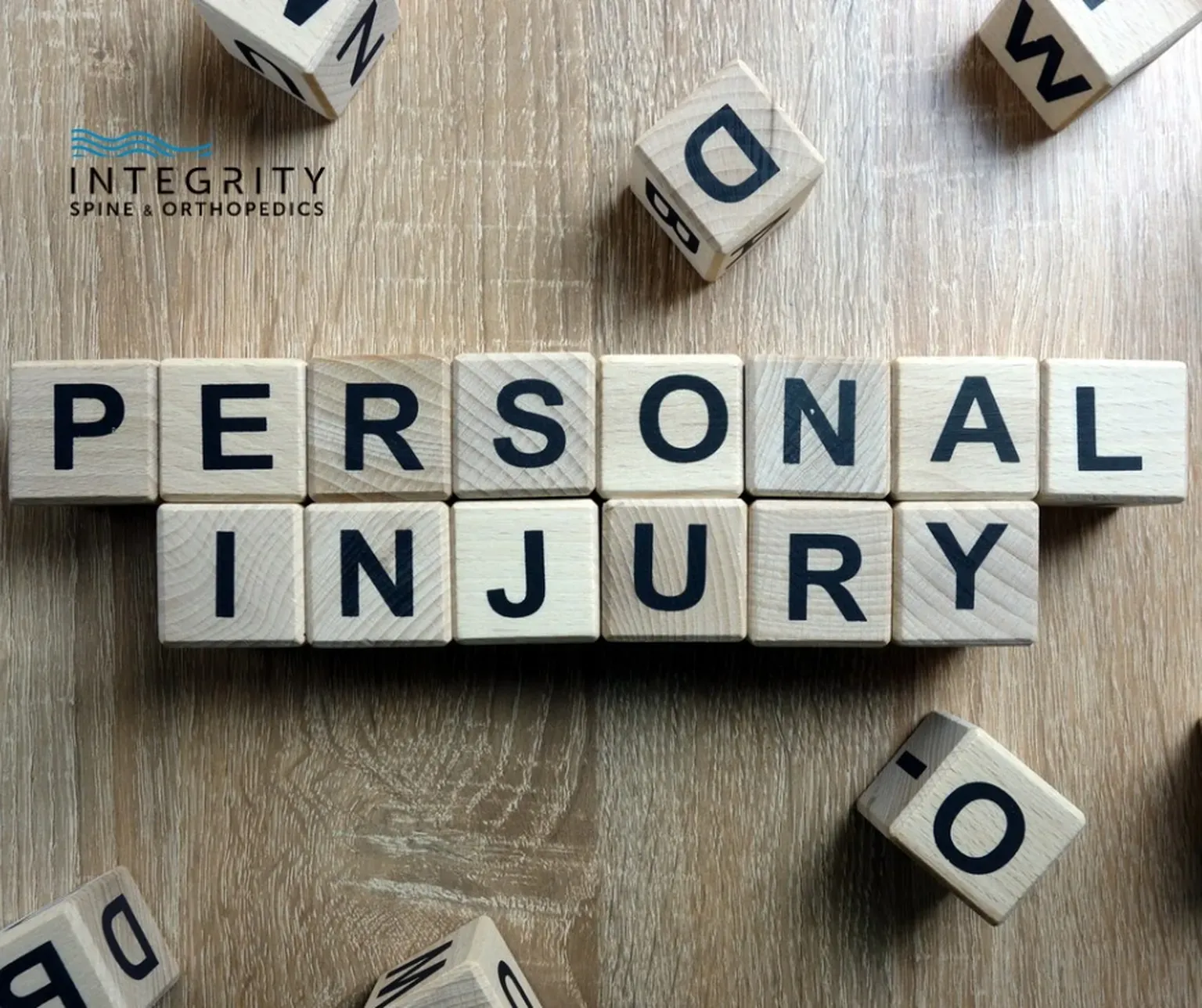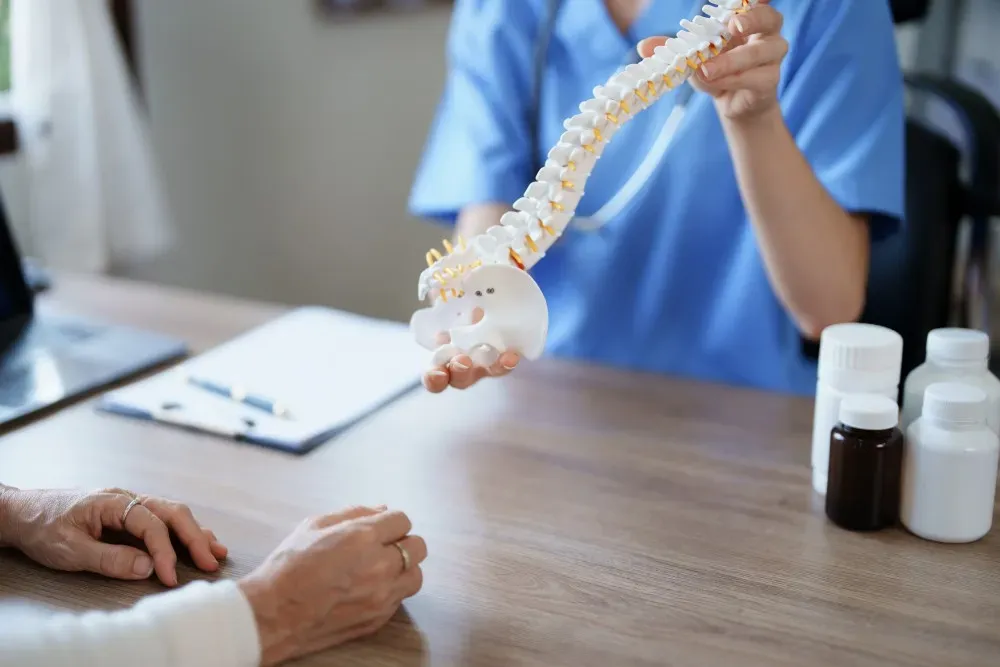Neurosurgery & Orthopedic Surgeons in Jacksonville

The 9 Steps to Recovery After an Auto Accident
There are no shortcuts in the healing process. After you’ve suffered an injury in a car crash, full recovery takes time and care.
There are no shortcuts in the healing process. After you’ve suffered an injury in a car crash, full recovery takes time and care. Some injuries take weeks or even months to heal completely, depending on the severity of the injury, pre-existing health conditions and how compliant you are with treatment.
While we can’t give you definitive answers on how long your recovery process will be, we can give you definitive actions to take that will put you on the right track. Keep reading to learn more.
1. SEEK MEDICAL CARE IMMEDIATELY AFTER A CAR ACCIDENT
Not all car accident injuries are visible immediately. Pain and symptoms from concussions, whiplash and spine damage may take hours, days or even weeks to appear. The longer you wait to seek medical care, the higher risk you have of injuries worsening and requiring a more extensive recovery period. Left untreated, accident injuries like whiplash and herniated spinal discs may lead to chronic pain in the future. And untreated concussions or internal bleeding can be life-threatening or cause permanent brain damage.
Even if you aren’t in pain after a car accident, see a doctor for a checkup. He or she can run imaging tests to check for internal bleeding, swelling, fractures and soft tissue damage.
2. FIND THE RIGHT AUTO INJURY DOCTOR
Your primary care physician (PCP) is not the best doctor to see after a car accident. PCPs are trained to treat internal injuries — many of them do not have the necessary training and qualifications to identify, diagnose and treat common accident injuries like whiplash, concussions, soft tissue injuries and fractures.
Instead, seek care from a specialist who has experience treating the types of injuries you may sustain. At Integrity Spine and Orthopedics, our team of board-certified doctors specializes in providing orthopedic care and pain management services for a wide range of joint, bone, muscle and spine conditions. Our physicians are trained to identify, diagnose, treat and rehabilitate musculoskeletal problems and get you back on your feet as soon as possible after an accident.
3. FOLLOW YOUR PRESCRIBED TREATMENT PLAN
The treatment process may be long and slow. The most effective way you can ensure a complete recovery, in as short a timespan as possible, is to follow the prescribed treatment plan created by your doctor. This includes:
- Taking time off work and limiting normal activities to allow your body time to heal
- Taking all medications as prescribed
- Participating in physical therapy
- Performing therapist-recommended exercises at home
- Setting and attending follow-up appointments with your physician
If you feel like some parts of your treatment plan aren’t effective, don’t just stop following the plan. Instead, talk to your doctor. Together, you can discuss alternate treatment options that will be more effective for you.
4. GET ADEQUATE REST
Sleep and rest are crucial components of the recovery process. When you sleep, your body increases blood flow to your muscles, and tissue and muscle repair and growth occur. Additionally, the levels of stress hormones in your body drop during sleep, which can help reduce internal inflammation. After an accident that causes a major injury, it’s important that you slow down and rest frequently so your body has time to heal. Good sleep will also positively impact your energy levels, alertness and mood during the day.
Know your limits and don’t push yourself too hard or too soon. If you try to “power through” serious car accident injuries, you run the risk of injuring yourself further.
5. MANAGE YOUR PAIN
You may be in a lot of pain for several days, weeks or even months after your accident. Pain can cause you to feel angry, hopeless, frustrated and less motivated to participate in physical therapy and take other steps to help your recovery. It’s important that you find ways to manage your pain — suffering through it in silence will only hinder your progress.
Pain management might include resting frequently during the day, taking over-the-counter pain medications and using hot or cold compresses. Massages may also help with sore muscles, tendons and ligaments. If you’re experiencing uncontrollable pain, pain that’s affecting your ability to function or pain that disrupts your sleep, then speak to your doctor. He or she may decide to prescribe stronger prescription painkillers or other pain treatment options.
6. EXERCISE AND STRETCH
It’s important to exercise and stretch to regain full range of motion, flexibility, balance and endurance. Regular movement will keep your muscles and joints from getting stiff and weak and it will also help reduce pain and inflammation from your injuries. Follow your doctor’s recommendations for the amount and types of exercises it’s safe for you to do. Even if you feel like you could do more, pushing yourself too hard before you’re ready may worsen an injury and prolong your recovery.
One great way to incorporate movement into your day is to practice gentle stretching routines like yoga or tai chi.
7. EAT A HEALTHY DIET AND STAY HYDRATED
Eating a nutritious diet can help keep your recovery on track. During the healing process, your body needs whole, fresh foods with plenty of vitamins and protein to help repair damage. Try to eat regular, healthy meals, even on days when you’re feeling a lot of pain or when you’re frustrated by the recovery process. Your body needs good fuel to function properly, and you’ll feel stronger and more energetic when you eat well.
And don’t forget to hydrate. Your body needs adequate fluids to repair muscle and tissue damage inside the body.
8. SURROUND YOURSELF WITH A GOOD SUPPORT SYSTEM
Surround yourself with friends and family who can help you while you heal. A good support system can lift your mood and make sure you’re motivated to follow your treatment plan. Depending on your injuries, friends and family members can also assist you in daily activities and transport you to and from appointments.
You may also need additional support from a professional counselor or spiritual advisor. It’s perfectly normal for a traumatic incident like a car accident to cause anxiety, depression or PTSD down the road. Please seek help if you have unresolved mental or emotional issues from your accident. If you don’t know who to turn to, your doctor can make recommendations.
9. BE PATIENT
Most importantly, be patient. The recovery and treatment process may be long, slow and frustrating. You may suffer setbacks or feel like you’re not making any progress. Keep moving forward by following your prescribed treatment plan and taking care of your body. Everyone’s healing looks different and occurs on a different timeline. But by following the steps above, you’ll be giving yourself the best possible chance to make a full recovery and get back to doing the activities you love.
CONTACT INTEGRITY SPINE AND ORTHOPEDICS AFTER A CAR ACCIDENT
If you’ve been in a car accident and need treatment for your injuries, contact Integrity Spine and Orthopedics. Our board-certified physicians have experience treating common car crash injuries like whiplash, concussions, soft tissue damage and spine damage. Call us today at 904-456-0017 to schedule an appointment or fill out our online contact form and we’ll get back to you soon.




